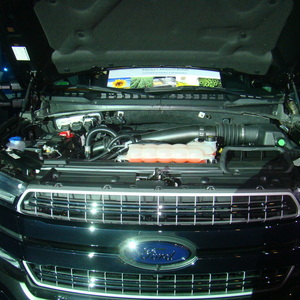Biodiesel can help reduce injector deposit formation

Photo: Ron Kotrba, Biodiesel Magazine
March 15, 2018
BY Ron Kotrba
Modern diesel engines utilize high pressure common rail fuel systems whose small injector gaps are highly sensitive to deposits. New research from the University of Rostock in Germany has shown that biodiesel use can minimize deposit formation in common rail injectors.
“Deposit formation processes could be simulated and factors influencing the formation of deposits could be identified,” stated Germany’s biodiesel quality management association, AGQM, one of the supporting organizations of the research. “The resulting measures have been examined for their effectiveness in this project.”
Advertisement
Advertisement
The use of aromatic-free fuels such as biodiesel and renewable diesel can reduce the deposit layer thicknesses, the research shows, with thickness decreasing as biodiesel content increases.
“The studies also showed that the formation of soaps is particularly critical and should therefore be avoided,” AGQM stated. “The standard, compliant biodiesel used in the project did not produce any soap-like coverings.”
Advertisement
Advertisement
The results of these tests not only prove the suitability of biodiesel in modern diesel engines, but they also appear to demonstrate biodiesel’s superior and beneficial fuel characteristics compared to fossil diesel.
The project was financed by Fachvereinigung Verbrennungskraftmaschinen (FVV e.V.) and the Agency for Renewable Resources (FNR e.V.), and it was supported and accompanied by AGQM and others.
Related Stories
Global digital shipbuilder Incat Crowther announced on June 11 the company has been commissioned by Los Angeles operator Catalina Express to design a new low-emission, renewable diesel-powered passenger ferry.
ATR and French SAF aggregator ATOBA Energy on June 19 signed a memorandum of understanding (MOU) to explore ways to facilitate and accelerate sustainable aviation fuel (SAF) adoption for ATR operators.
Argent Fuels, a leading provider of carbon-saving fuels in the UK, is accelerating its efforts to support a greener future. The expansion of its High Blend Biodiesel will supply to bus, coach, HGV fleets and rail in the south of the UK.
Sprague Operating Resources LLC on June 24 announced it has been selected by the New York City Department of Citywide Administrative Services to supply renewable diesel for its marine fleet, including the iconic Staten Island Ferry.
On June 17, the NYC Department of Citywide Administrative Services and the Department of Transportation announced the start of the Staten Island Ferry’s transition to renewable diesel, marked by the delivery of the first barge of fuel.
Upcoming Events










